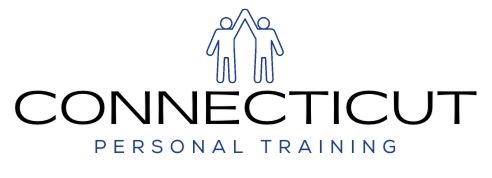Clean Eating, in a nutshell, says our West Hartford Connecticut personal trainer, is food that has hardly any processing done to it.
“Clean Eating” is a buzz word that has been around for a little while in the commercial industry but it’s been around a long time in the gym, body building and fitness industries. What immediately comes to mind is those competitive body builders eating baked chicken breasts and steamed broccoli for weeks on end.
But what IS ‘clean eating”? We asked our personal trainer from West Hartford Connecticut to shed some light on what his definition is, and how we can eat cleaner on an everyday basis without going insane, or feeling deprived.
He gave us some pointers.
Food that is processed essentially means changing the form of the food from its natural state.
Think, removing the components of wheat to make it white flour, sautéing vegetables in a pan, baking an apple bread. It can include anything, and we very often process food.
Processing could mean something as minimal as freezing it or heating it, but sometimes some processing is a good thing because it can take away bacteria or toxins, and even more, can make nutrients more widely available and absorbed by the body. What’s more, processing food (as in cooking it), can make it much more palatable and give us variety.
What is really the thing we should be trying to avoid, says our personal trainer in West Hartford Connecticut, is the ultra-processed foods—added sugars, fats, sodium, colors and added chemicals and preservatives we can’t pronounce.
These ultra-processed foods are typically stripped of their necessary nutrients, and some are genetically modified, which studies show can lead to cancer or infertility. There are numerous health concerns associated with them.
Clean eating, says our West Hartford Connecticut personal trainer, has many benefits:
First, he says, this can be useful info for fighting childhood obesity and youth weight management. Did you know that most plant-based diets are known to be healthy? Diets heavy on fresh fruits and vegetables can help to prevent disease, like certain cancers, heart disease, type 2 diabetes, high blood pressure and high cholesterol. Healthy weights are also associated with diets rich in fruits, vegetable, nuts and seeds.
Eating clean does not mean you have to eat everything raw. The minimally processed foods we should be seeking out, says our West Hartford Connecticut personal trainer, are the unrefined grains (steel-cut oatmeal is preferred over instant oats, for instance, and brown rice, quinoa and bulgur is preferred over white rice). We should also be searching for unprocessed meats. Wild is best but choose pasture-fed over grain-fed—meats not using antibiotics of hormones. Also, hormone-free dairy products, oils, and fresh or frozen vegetables and fruits that are organic and pesticide-free.
When eating clean, says our personal trainer in West Hartford Connecticut, you still need to remember to watch portion sizes. It does not give you free license to eat as much as you want.
When shopping for clean food, it’s always a good rule of thumb to use the periphery of the store. The produce aisle, meat and fish refrigerated aisles (usually at the back) and the dairy aisle typically make a horseshoe shape around the store. The most processed foods are found in the parallel aisles in the middle. It is good to be mindful of those foods by reading labels, says our personal trainer in West Hartford Connecticut. Whole grain pasta is somewhat processed but it certainly is not equivalent to a donut or a Twinkie.
To minimally modify your foods when cooking them, steaming, baking, sautéing and roasting them are preferred, versus deep frying or stewing them in extra fats.
According to our West Hartford Connecticut personal trainer, it is not necessary to avoid whole food groups in order to eat clean. For instance, he sees no reason to avoid all grains, or eliminate all dairy.
“It can be very dangerous when you start eliminating food groups even during the holidays and Thanksgiving, as is done with many popular diets these days. It can simply and quite honestly set someone up for failure because it’s an All or Nothing approach.”



